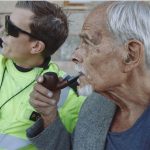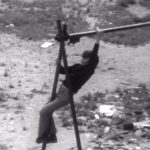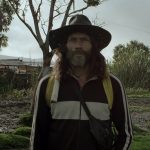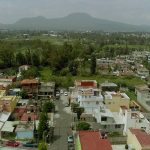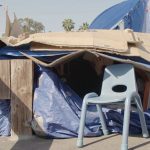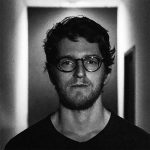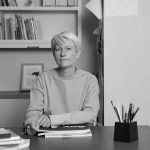72 TREES
GR, 2019, 35’
English with English subtitles
D: Helena Doyle, Eduardo Cassina
By taking on a challenge set by ‘the richest living artist’ Damien Hirst, two young artists see an opportunity to get a painting and sell it in order to buy a flat and jump on the property ladder. They do their math, put together their savings, crash at friends, fly from country to country in a race against time to get enough stamps at galleries for the flat. The CO2 emission during the mission could only be compensated if both protagonists planted 72 trees.
Screening and introduction with director Helena Doyle.
PLASTIC GIRLS
DE+KR, 2017, 7’
Korean with English subtitles
D: Nils Clauss
A glimpse from South Korea allows us to reflect on how culture produces a certain view of women in general and how we think about an ongoing trend regarding a sexualisation of public space.
TRAFFIC-SEPARATING DEVICE
SE, 2018, 14’
Various with English subtitles
D: Johan Palmgren
A traffic separating device in Stockholm is supposed to keep normal cars away and only let buses pass. It turns into a tragic and funny disaster as cars continue to go there and hundreds of them get destroyed every week.
THIRTY-SEVEN MOVIES FOR A HOME
IT, 2017, 11’,
Italian with English subtitles
D: Arianna Lodeserto
During the 60s and the 70s, „immediate cinema” intended to upset the cinematic shapes and its narrow boundaries. Underground as well as militant, experimental as much as documentary, „cinema right now” was to tell the alternative forms of human inhabitancy in a different format. A visual essay made of film shreds and videotape flats about fighting women, building speculators, criticism, and action.
LACUS
ME, 2018, 14’
Spanish with English subtitles
D: Ignacio Miguel Ortiz
The great lakes of the Valley of Mexico used to be a natural system to regulate the temperature of the capital of the country. since their disappearance of the lakes, the temperature has increased. We have created an ecological imbalance that we have not yet been able to reverse.
WHAT IT TAKES TO MAKE A HOME
CA+SU, 2019, 29’
English with English subtitles
D: Daniel Schwartz
C: Giovanna Borasi
What does it mean to live in the city without a place you can call your own? What role can architects have in addressing homelessness? And how can cities become a better home for all? Focusing on some causes and conditions of homelessness, the film questions the role architects can play toward overcoming the stigmatization of people experiencing it, in order to build more inclusive cities.
ABOUT THE CREATORS
Helena Doyle is a multi-disciplinary artist, filmmaker, and educator working across mediums including documentary, immersive and interactive installations, aerial sculpture, fulldome, street theatre, and land art. She holds a BA from the National Film School of Ireland and an MA in art & media practice from the University of Westminster, London.
Eduardo Cassina works with space, the way we relate to it and to each other, mostly through workshops, urbanism residencies and immersive installations. Trained as an architect, he co-runs the art studio METASITU in Kyiv and Athens, and teaches architecture at Chulalongkorn University in Bangkok.
Nils Clauss (1976, Wittmund) is a cinematographer and photographer by trade currently based in Seoul, South Korea. He has shot, directed and edited a number of award-winning music videos, short, feature and documentary films, which have been screened at various international festivals. Along with Neil Dowling and Kuiock Park, he is part of CONTENTED an international boutique production company that specializes in features, music video and commercials. He created a number of hit music videos like “Senior Living” for the Norwegian band Röyksopp which was selected for the prestigious Saatchi & Saatchi’s New Directors’ Showcase. Plastic Girls is the final film of his Korea-related trilogy following Biniki Words and Last Letters.
His other films in a previous festival edition are If… and Bikini Words.
Johan Palmgren (1967, Uppsala) has worked on a large number of films for 20 years. He studied in French language and ancient history in Lund. Before his career as a cameraman, producer and reporter for the production company Moderna Tider in Stockholm, he used to have a furniture company. He has won many prizes for his films.
Arianna Lodeserto holds a PhD degree in in aesthetics at La Sorbonne. She did postdoctoral researches in media archeology and history of urbanism. Often exploring different media, she is passionate about urbanism, third landscape, found footage and experimental documentaries. Her short film is part of the series Towards a Counter History of Italian Cinema.
Her other film in a previous festival edition is Houses We Were.
Ignacio Miguel Ortiz Ortega (1984, Mexico City) is a cinematographer of documentary projects and fiction short films. He holds a degree in Electronic Engineering (National University of México – UNAM) and a Bachelor’s degree in Cinematography (Centro de Capacitación Cinematográfica in México – CCC).
Daniel Schwartz (1987, Nairobi) is a filmmaker, photographer, and multimedia artist based in Zürich. He has a degree in urban studies and photography and worked at the Urban-Think Tank Chair of Architecture and Urban Design at ETH Zürich. His work focuses primarily on urban transformation from a social, spatial, and political perspective. Schwartz’s photography, writing and films have been featured by some of the most prestigious newspapers and festivals, including International Documentary Film Festival Amsterdam, MoMA, Venice Architecture Biennale, The New York Times, The Guardian, and Domus.
His films in previous festival editions: Francis Kéré – An Architect Between, Gran Horizonte – Around the Day in 80 Worlds, Mumbai – Maximum City Under Pressure, and Torre David.
Giovanna Borasi (1971, Milan) is an architect, editor, and curator. She studied architecture at the Politecnico di Milano, later worked as editor of Lotus International and Lotus Navigator. Borasi joined the Canadian Centre for Architecture (CCA) in 2005, first as a curator then as chief curator. She has been director of the CCA since January 2020. Borasi’s work explores alternative ways of practicing and evaluating architecture, considering the impact of contemporary environmental, political, and social issues on urbanism and the built environment.










